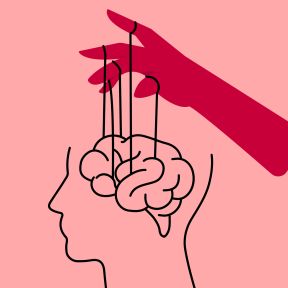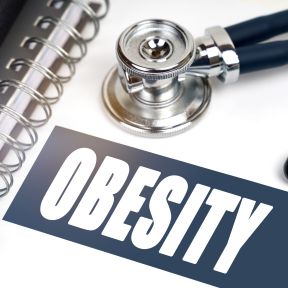
Appetite
If only nourishment were a simple process: Get hungry, eat, get full, stop eating. In reality, an array of biochemicals sending signals between the brain and the body control both hunger and appetite, and the difference between the two is complex.
Hunger denotes a physical need for food; appetite is a desire for food—and it can be difficult to distinguish between the two. Appetite can be influenced by physical conditions such as blood sugar levels, hormones, and exercise. It can also be driven by mood and emotions. Stress, loneliness, and boredom can trigger eating and drive an individual to the choice of fatty, sugary, or salty foods instead of healthier, more nutritious options.
Emotional eating can also override signals of fullness, which can lead to overeating and result in weight problems if the behavior becomes routine. No one should ignore the body’s cravings, but it is wise to be mindful about what may be driving a desire for food.

It may seem like the stomach is the arbiter of hunger, but the brain is calling the shots. It is important to remember that humans evolved under conditions of food scarcity, and that such scarcity prevailed for most of human history.
Maintaining a body weight that allows not just for everyday functioning but for reproduction of the species, then, has not been left to chance: Many hormones and neurochemicals help regulate appetite and influence weight. Researchers believe the hormone ghrelin plays a central role in stimulating hunger. Ghrelin is produced in the stomach, and an empty stomach prompts the hormone to be released into the bloodstream and travel to the brain, where it activates nerve cells that increase appetite. Once eating begins, the stomach expands, curbing the release of ghrelin and diminishing a person's appetite.
People are driven to eat for many reasons besides hunger. Social cues can subtly raise appetite, because people tend to eat more during a meal with friends or family than during a meal by themselves. Cultural norms, such as finishing what’s on the plate, and sensory cues, such as the smell of warm chocolate cake can also influence appetite and the amount of food people consume.
Sleep habits can influence the hormones that control appetite, potentially leading to weight gain. Levels of the hormone ghrelin increase with poor sleep, producing greater feelings of hunger. And the hormone leptin decreases, which requires more food for a person to feel full. Additionally, sleep disruptions can alter how food is metabolized, and lead to less exercise and general movement the next day.
A sudden desire to eat more could be due to physical conditions such as diabetes, hyperthyroidism, hypoglycemia, Grave’s disease, premenstrual syndrome, and side effects of some medications. In terms of mental health, stress, anxiety, and depression can lead to different eating patterns including increased appetite.
For most of human evolutionary history, calories were scarce and uncertain. So even today, we want to store as much energy as possible. That mindset hinders appetite in several ways. Our instincts tell us to keep eating well beyond when we are sated. Worse, the foods we crave—calorie-dense fats and sugars—were once rare and valued as a bulwark against starvation; now they're plentiful and harmful in excess. And we don't crave plants, precisely because they were more abundant in our past.

Although people may experience natural fluctuations in their appetite from time to time, sudden or severe appetite loss can be a harbinger of physical and mental health challenges. Addressing and treating the underlying condition is key to regaining a healthy appetite.
Diminished appetite may be indicative of stress, anxiety, depression, or grief. In these situations, distress can become all-consuming, eliminating the desire to eat and preventing such basic tasks as preparing a meal. Physical manifestations of stress can also contribute to appetite loss; for example, nausea and headaches can interfere with the cues that direct appetite. Depression can both fuel and be fueled by food as well.
When people don’t eat due to concerns around weight and body image, it may be due to an eating disorder rather than appetite loss. (For more, see Eating Disorders.)
Appetite loss can also be a side effect of medications for mental health conditions, such as Adderall or Ritalin for ADHD and Prozac for depression.
It can be, yes. One of the symptoms of depression is a consistent decrease in appetite or significant weight loss when not dieting. People who are depressed often lose interest and pleasure in eating, similar to the absence of motivation overall. Additionally, some believe that the condition may blunt physiological taste sensitivity, another pathway for appetite loss in depression. (However, the opposite relationship can also occur—significant weight gain can be a symptom of depression.)
A cold, flu, or stomach bug
• Irritable Bowel Syndrome or Crohn's disease
• Diabetes
• Hypothyroidism
• Anemia
• Aging
• Cancer
Illnesses can strip people of the desire to eat, because immune cells release proteins called cytokines that suppress appetite and encourage rest. The body can then marshall all of its resources to fight off the infection.

Emotions can have a powerful influence on our food choices. Consuming food for the purpose of regulating emotions, rather than to satisfy hunger, is called emotional eating or stress eating. It can be evoked by stress, depression, sadness, shame, anger, loneliness, and boredom.
Many people struggle with emotional eating at some point, but research suggests that therapies such as Acceptance and Commitment Therapy, Cognitive Behavioral Therapy, and Dialectical Behavior Therapy can help people overcome patterns of emotional eating.
Stress levels are central to emotional eating. Other components of motivation and self-regulation may be involved as well, including restrained eating (restricting and monitoring food intake, which can lead to constant thoughts of food), impulsivity (not considering the consequences of unhealthy food consumption), reward sensitivity (how responsive one is to the mood-lifting properties of comfort food), and cognitive reappraisal (how one evaluates an emotion-inducing situation).
Developing coping skills to manage the stress that induces emotional eating is key to changing the habit. That can be accomplished by learning skills around time management, problem solving, conflict resolution, mindfulness, and cognitive behavioral therapy. People can also take action by anticipating situations that might lead to challenging food choices, such as by not going grocery shopping when they’re hungry and or buying foods they know will be hard to resist, for example.
Compulsive overeating is called Binge-Eating Disorder. Binges involve eating an abnormally large amount of food in a contained time period, accompanied by feeling a lack of control over eating during the binge, according to the DSM-5. Binges may involve eating abnormally fast, eating until uncomfortably full, and feelings of shame and distress. Binges tend to occur once a week for at least three months to receive a diagnosis.














